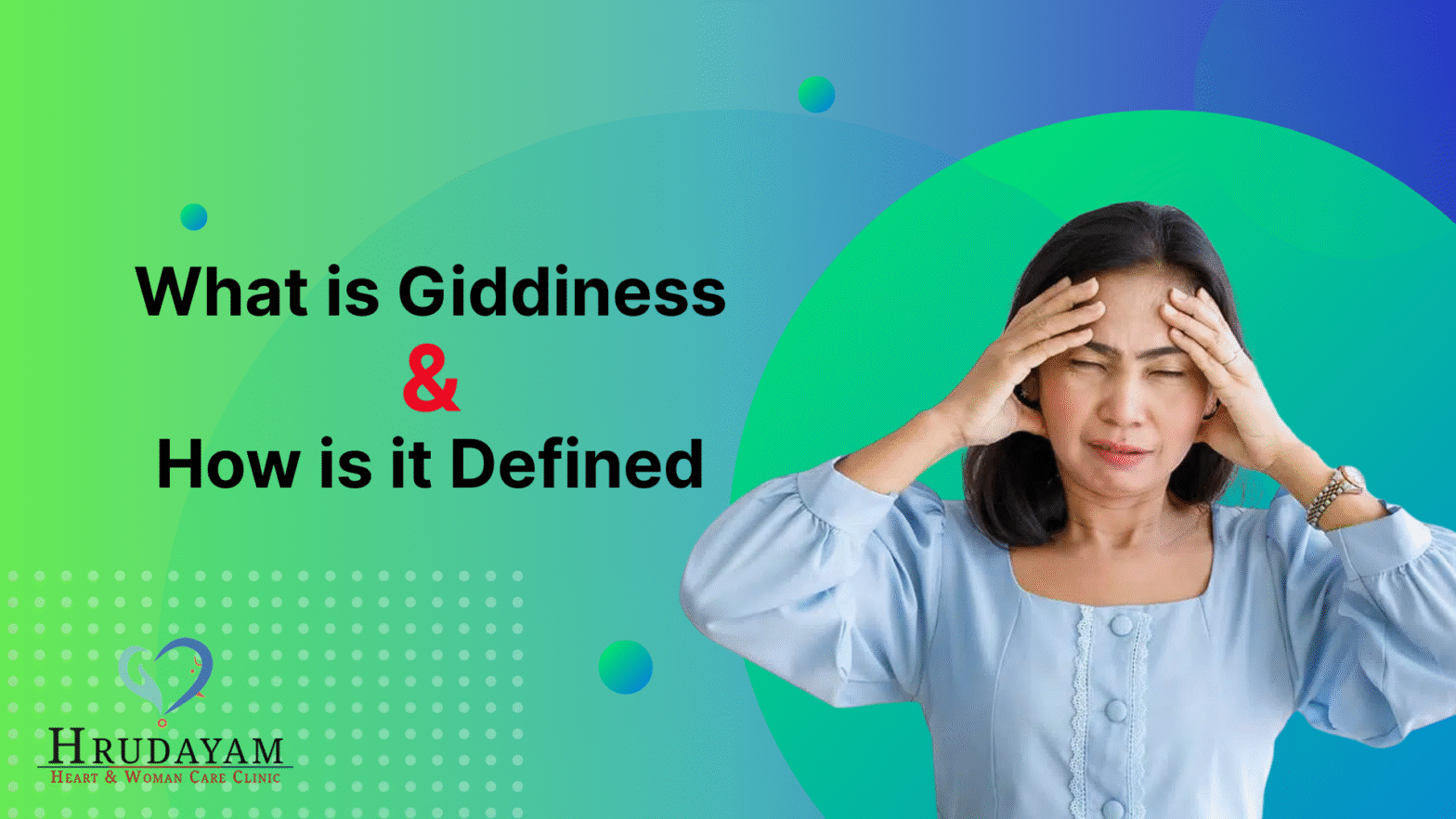Many people ask, “What is giddiness?” Giddiness can be explained as a sensation of being unsteady, lightheaded, or dizzy. Some say they see the room spinning; others feel like they are about to faint or lose balance. Giddiness is not a separate disease; in fact, it is considered a symptom of a disease or disorder. Giddiness, by that, is a state when your balance, or feeling of stability, is not balanced.
What are the Different Types of Giddiness?
Doctors classify the various types of giddiness depending on the symptoms. The three main ones are:
Presyncope: It is a feeling of being on the verge of fainting. One may feel weak, lightheaded, or that the vision is darkening.
Disequilibrium: At this point, you describe the feeling as being off-balance and falling if you try to walk. Most times, it does not involve spinning or fainting, but the person feels like their body is not steady.
Vertigo: One of the most common types of giddiness is vertigo. Vertigo is a feeling of either the person or the room spinning.
What are the symptoms of giddiness?
Giddiness symptoms vary from person to person, but the most common ones are:
- Spinning or floating sensation
- Lightheadedness or a feeling of faintness
- Ambulatory difficulty
- Blurring of vision
- Nausea or vomiting
- Heavy head or confusion
What Causes Giddiness?
There are numerous reasons behind the question “What causes giddiness?” Some of these are very easy and transitory, while some might need health intervention.
Inner Ear Problems that Cause Giddiness
It is your inner ear that holds the balance. Thus, a problem can be this one only, but as per the symptoms, the whole balance system is being upset as wrong signs are sent to the brain, which is not able to decipher them quickly to give you a correct solution, which in your state is giddiness.
Benign Paroxysmal Positional Vertigo (BPPV)
One of the reasons is the small crystals in the inner ear that have moved to an abnormal place. As a result of this, you will get spinning very quickly while changing the position of your head.
Infection
Ear infections, for example, viral infections of the ear, can affect the balance position, resulting in vertigo.
Meniere’s Disease
It happens when there is too much fluid in the inner ear. The consequence can be one of the symptoms of vertigo: constant ringing in the ear and loss of hearing.
Migraine
Some people get dizzy when they have a migraine or right before the occurrence of one.
Circulation Problems that Cause Giddiness
In some cases of giddiness, insufficient blood flow to the brain is the reason.
Drop in Blood Pressure: Rapid lowering of the blood pressure that occurs when you suddenly stand up may result in light-headedness.
Poor Blood Circulation: What follows is that less oxygen will be delivered to the brain, and this will result in light-headedness if the heart is unable to pump blood properly.
Other Causes of Giddiness
In most cases, giddiness is not associated with the ear or blood circulation. The list of other reasons includes:
Neurological Conditions: Cerebral problems, like strokes, can cause imbalance and thus giddiness.
Medications: Dizziness is one of the side effects of some medications.
Anxiety Disorders: Stress and anxiety symptoms include dizziness and the feeling of being unsteady.
Low Iron Levels (Anaemia): Iron deficiency in the body makes blood carry less oxygen, which leads to the feeling of faintness.
Low Blood Sugar (Hypoglycemia): Dizziness is the feeling experienced by diabetics or those who have skipped meals when the blood sugar level drops.
What are the risk factors?
Some people are more prone to giddiness.
Age: The elderly are more likely to suffer from this condition due to the changes in the balance and the circulation that come with age.
A Past Episode of Giddiness: If you have been dizzy before, you might be more inclined to it again.
Conclusion
Giddiness is an occurrence that people complain of and is a shared experience of almost everyone in life. Also, it may not be taken lightly and ignored at all times. If it happens frequently as a symptom of its underlying disease, then visiting a doctor is really helpful. Identifying giddiness symptoms, giddiness types, and giddiness help to unravel your body secrets gradually. Keep in mind there are numerous giddiness treatment options, i.e., depending on the cause, such as therapy, lifestyle changes, and medicines.
FAQ
It is quite common for the first symptoms of giddiness to be those of spinning, lightheadedness, and imbalance that occur suddenly. Some of the triggers may be you standing too fast, an ear problem, or stress.
Most of the time, it is a minor issue, but it can become a serious problem if it results in a fall or fainting or if it is accompanied by other symptoms like chest pain, hearing loss, or speaking difficulties.
Foods that contain iron, vitamin B12, and water are recommended. Green leafy vegetables, nuts, fruits, and a lot of water are some of the things people can use.
The main things a person who feels dizzy can do are sit down, take some water, rest, or avoid any quick movements that may cause dizziness. If the problem is deeply rooted, then only medical treatment will help.
How can I avoid giddiness?

